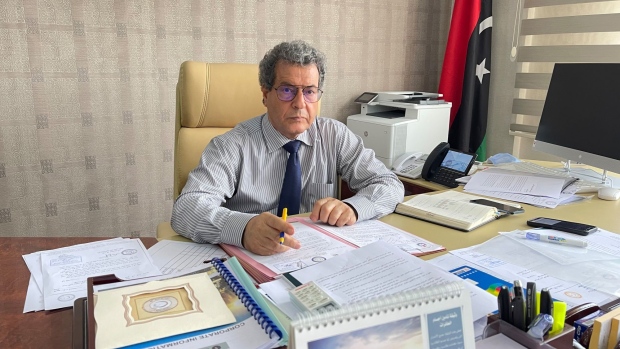Aug 16, 2021
Libya’s Budget Battle Could Imperil Oil Output, Minister Says
, Bloomberg News

(Bloomberg) -- Libya will struggle to sustain its current crude output if lawmakers don’t overcome a lengthy dispute and pass the OPEC member’s first nationwide budget in about seven years, the oil minister said.
The North African nation is producing roughly 1.3 million barrels per day, with a target of 1.5 million by the end of 2021, Mohamed Oun said in an interview. But he said that depends on Libya’s recently unified parliament finally agreeing on amendments to a 2021 spending plan that’s had lawmakers at odds for at least four months.
“If the budget is not approved, there will be an impact and perhaps great difficulties in maintaining oil production rates,” Oun, appointed this year as Libya’s first oil minister since 2014, said in the capital, Tripoli.
The budgetary standoff is the latest potential challenge for the industry in Libya, which holds Africa’s largest crude reserves but has struggled in recent years to pump levels close to those produced under late dictator Moammar Qaddafi. Fighting between rival factions has put the oil fields, ports and workers in the firing line and caused regular production drops.
The delay in agreeing a final budget also points to the difficulty of reaching political consensus in Libya after years of rule by rival governments in the country’s east and west. Objections by some lawmakers in the parliament reunified in 2021 have focused on funds allocated for development, some of which would go to the oil industry.
Oun said his ministry has requested 7 billion dinars ($1.5 billion) for investment projects to develop the sector, but only 3 billion dinars have been earmarked in the draft budget. The state-run National Oil Corp. has long complained it needs more money to fix the Libya’s aging infrastructure.
The minister also said Libya was studying offers by foreign companies to invest in refining-related projects, without naming the firms. TotalEnergies SE of France, Italy’s Eni SpA and Spain’s Repsol SA are among companies involved in the country.
©2021 Bloomberg L.P.


